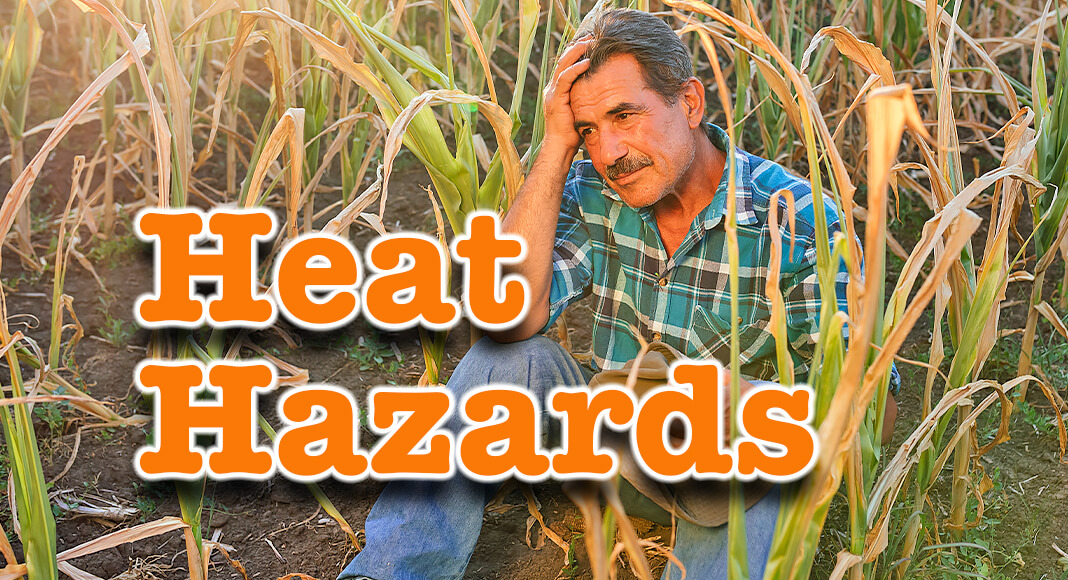
Mega Doctor News
by Rush University Medical Center
Newswise — When the temperature soars above 90 degrees, most people can stay cool and safe. But for older adults, a few days of hot weather can pose serious health risks. Fortunately, knowing the facts and being prepared can help prevent heat exhaustion and heatstroke.
“As we age, we become less efficient at noticing and adjusting to the heat,” said Juan Cobo, MD, an internal medicine physician and geriatrics specialist. “We sweat less, slowing our ability to cool down. At the same time, we become less sensitive to thirst. By the time we feel thirsty, we’re already dehydrated to some degree.”
Combine those natural effects of aging with medical conditions and living situations, and older adults are exceptionally vulnerable to heat exhaustion and heat stroke. According to Cobo, the most common conditions and medications that raise the risk of overheating include the following:
- Lack of mobility: When someone finds it difficult to get up and get a drink of water or move to a cooler location, they may get overheated or dehydrated, especially if they live alone.
- Medical conditions: Heart and vascular diseases make it harder to adjust as the temperature rises. People with diabetes, kidney disease, dementia and even depression can become dehydrated more easily. (People with heart failure should ask their doctor about how much they should drink to avoid dehydration without taking in too much water, Cobo said.)
- Medications: Countless prescription and over-the-counter drugs can make it harder to stay hydrated, while several can lower blood pressure too much — and others can slow an older adult’s response or cause confusion. And when medications are combined, the effects are multiplied, Cobo said.
“Patients often take diuretics for blood pressure, which releases fluids, and they may take a beta blocker to slow their heart. If they have knee or other joint pain, they may take ibuprofen or another NSAID,” he said. “Then they go outside to their garden on a very warm day, and they don’t realize they are thirsty. Their fluids are depleted and now their sodium and potassium and magnesium levels aren’t normal. This can lead to confusion, dizziness, dehydration and even kidney damage.”
Other drugs that can cause problems during hot weather include antidepressant and anti-anxiety medications (especially those that cause drowsiness), antipsychotics, antihistamines and other types of allergy relief, cholesterol and blood sugar controlling prescriptions and OTC pain and migraine relief.
Staying cool and comfortable
Knowing that hot weather can put older adults at risk is the first step toward avoiding heat exhaustion and heatstroke. The second is having a plan for days when temperatures will be in the upper 80s or higher.
If you live alone and have limited mobility or taking medications that make you more sensitive to heat:
- Keep water by your side.
- Don’t drink caffeinated or sugary drinks or alcohol.
- Set a timer to remind yourself to drink water.
- Keep an eye on the temperature in your home as well as outside. Keep your home cool, but not too cool: between 68 and 78 degrees. If you cannot keep your home cool, contact a family member or your city’s information line to find a cooler location. (In Chicago, dial 311.)
- Stay in touch with family or friends.
- If you have concerns about your medications or how you’re feeling, contact your doctor’s office.
If you have an older family member or neighbor:
- Check in with them. Have a plan for calling or visiting them when hot weather is forecast.
- Check the temperature in their home if you can. If it’s too warm, talk with them about their options for a safe, cool space.
- Know when to get help.
Know the danger signs and know what to do
Feeling too warm can turn to heat exhaustion, and if the situation isn’t corrected, heat exhaustion can quickly become heatstroke, which is a life-threatening condition.
The symptoms of heat exhaustion include weakness, headache, flushed face, fast heartbeat, dehydration (dark-colored urine or little urine output, little or no saliva), tiredness, dizziness or light-headedness and abdominal cramps. If you become overheated while indoors, drink water or a sports drink, loosen your clothing and call a family member. If you have a health condition or concern, call your doctor.
“If heat exhaustion worsens to heatstroke, it’s an emergency,” Cobo said.
Family and friends play an important role in helping an older adult who lives alone. Weakness and confusion are symptoms of heat exhaustion, and so the one suffering in the heat may not be slow to react, he added.
They may need help moving to a cooler location and someone to ensure they are drinking fluids. They may need immediate or even emergency medical care, he said.









